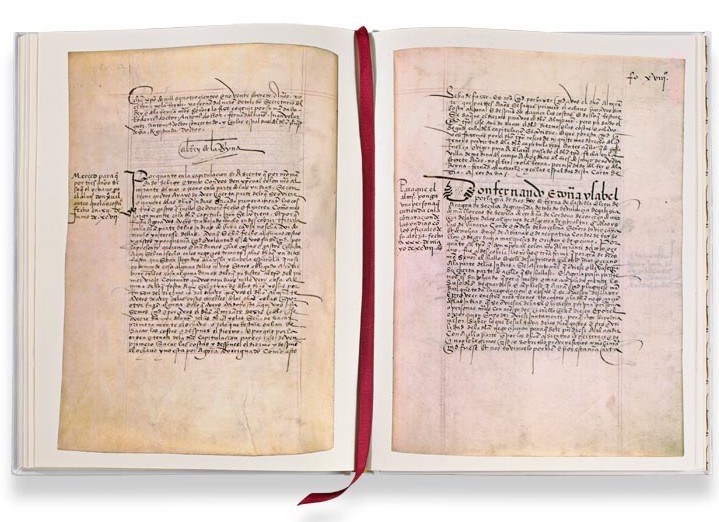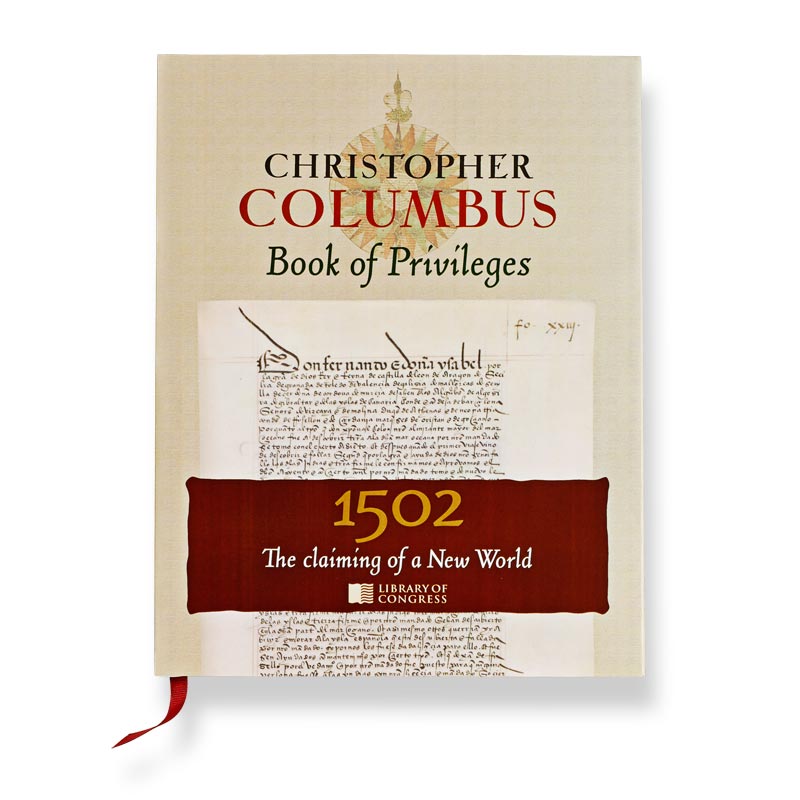One of the least-known collections of legal documents had some of the greatest impact on the history of the Americas.
In the Library of Congress collections in Washington, D.C., is a compilation of royal charters, papal bulls, writs, grants and other legal documents that Christopher Columbus brought together into a cartulary in 1502. It is these documents that put forth the agreements between Columbus and King Ferdinand and Queen Isabella as to ownership and ruling of the lands that Columbus was discovering in the Americas.
The Library of Congress’s authorized facsimile of the Book of Privileges, published by Levenger Press, includes the Dudum siquidem Papal Bull of 26 September 1493 by Pope Alexander VI that is believed to contain the first written reference to a New World.

The three authors of the facsimile book provide context and history for the Book of Privileges. Chet Van Duzer explores the geographic knowledge of the day, and why Columbus thought the Americas were China. John W. Hessler discusses the structures of medieval law that informed Columbus’s cartulary. Daniel De Simone recounts the Library of Congress’s acquisition of the Book of Privileges (the copy known as the Washington codex), one of only four principal copies known, and the bibliographic materials that the Library offers as a result of this acquisition.
The authors’ bios at the date of publication
Van Duzer is an Invited Research Scholar at the John Carter Brown Library in Providence, Rhode Island, and works on special projects in the Geography and Map Division at the Library of Congress.
Hessler is Curator of the Jay I. Kislak Collection for the Archaeology and History of the Early Americas at the Library of Congress and Lecturer in the History of Archaeology and Exploration at Johns Hopkins University.
De Simone was Curator of the Lessing J. Rosenwald Collection of the Library of Congress and is now Eric Weinmann Librarian at the Folger Shakespeare Library.

Nicolás Wey Gómez, Professor of History, California Institute of Technology, had this to say about the facsimile edition:
The Book of Privileges is a perfect blueprint of Columbus’s understanding of his legal rights to the Indies at a time when he saw his good fortune wane with the crowns of Aragon and Castile. The papal bulls, royal concessions, and various other documents he compiled to reassert his status as admiral, viceroy, and governor of the Indies also crucially attest to the protocols by which a tiny Christian kingdom reinvented itself as a globalizing empire. This facsimile edition of the Washington codex – the only surviving copy to have included the earliest known document seeming to acknowledge Columbus’s discoveries as something distinct from legendary India – constitutes an important scholarly complement to Nader and Formisano’s edition and translation of the Genoa codex. In the essays that accompany this handsome facsimile, Van Duzer, Hessler, and De Simone carefully elucidate the changing geographical ideas and legal traditions that inform the Book of Privileges, and they guide us to the treasury of early Americana housed today at the Library of Congress.

